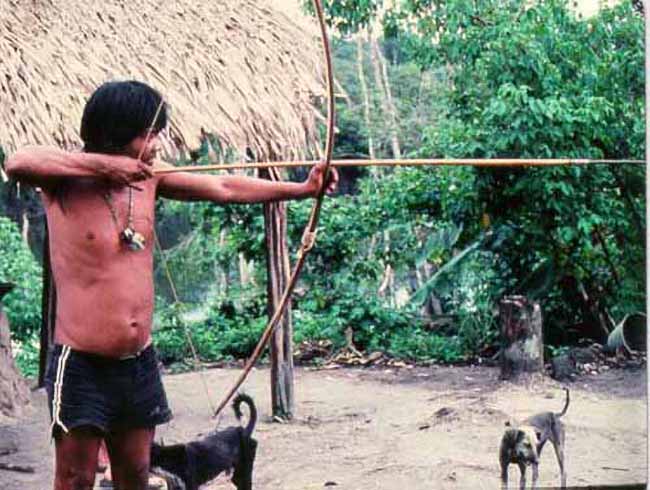
http://www.sciencedaily.com/releases/2012/02/120221104037.htm
According to University of Miami (UM) anthropological linguist Caleb Everett, the Piraha are surprisingly unable to represent exact amounts. Their language contains just three imprecise words for quantities: Hòi means "small size or amount," hoì, means "somewhat larger amount," and baàgiso indicates to "cause to come together, or many." Linguists refer to languages that do not have number specific words as anumeric...
The work was motivated by contradictory results on the numerical performance of the Piraha. An earlier article reported the people incapable of performing simple numeric tasks with quantities greater than three, while another other showed they were capable of accomplishing such tasks...
The people were not able to do the one-to-one correspondence, when the numbers were greater than two or three.
The findings support the idea that language is a key component in processes of the mind. "When they've been introduced to those words, their performance improved, so it's clearly a linguistic effect, rather than a generally cultural factor,"
--------
D - better language... better mind? Reducing demands on both the short and long term memories. Hmm...
No comments:
Post a Comment